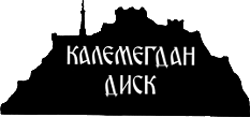Information
Shop
Suche
Katalog
- Empfehlungen
- Demnächst
- Was ist neu?
- Wieder im Bestand
- ABC-Listen CDs
- ABC-Listen LPs
- Komplettliste CDs
- Komplettliste LPs
Bestellung

Pop Mašina
Kiselina
- Tonträger: LP
- Gruppe: Pop Mašina
- Titel: Kiselina
- Land der Gruppe: YU
- Stil: psychedelic Underground Rock
- Rating: 5
- Erscheinungsjahr: 2022
- Aufnahmejahr: 1973
- Produktionsjahr: 1973/2022
- Plattenfirma: Croatia Records
- Artikelnummer: LP 6129676
- Farbe des Labels: brown/white
- Ausgabe: 2022
- Extras: 180 gram vinyl, fold out cover
- EAN: 3850126129676
- Gewicht: 352 g
- Optisch: new
- Akustisch:
- Cover: new
Croatia Records Release Information
The seventies of the last century gave birth to a strong rock scene whose influences can be heard in the music of numerous bands today. One of the most influential bands of the Yugoslavian rock scene from the early seventies was certainly Pop Mašina (Pop Machine), a band that is almost impossible to place within the boundaries of just one genre. Gaining great popularity precisely because of their flirtation with hard rock, jazz, psychedelia and blues, this Belgrade band left an indelible mark with their two published studio albums, some singles, and especially with the debut with the symbolic name “Kiselina” (Acid).
50 years after the original release of this album, Croatia Records is very proud to offer a vinyl reissue of “Kiselina” on 180 gram vinyl. The recordings revitalized in the London Abbey Road studio guarantee audiophile sound quality and give this iconic album the shape it always has deserved.
“From the very beginning, there was an idea for “Kiselina” to be a concept album, so all the lyrics represented a connective tissue, regardless of the fact that the music was not genre-generated, but rather reflected Pop Mašina’s spheres of interest – from hard rock, acoustic, and psychedelic to jazz-rock. Because of this, “Kiselina” could never be classified in one genre, but was a genre of its own. Recorded and completed in impossible conditions, it was constantly under pressure that it might never come out because “no one was interested in that kind of music”. After a delay of half a year, it was released in two of the most important stores in Belgrade before the New Year 1973, and on December 30 and 31, the entire pressing was sold out, and it never even arrived outside Belgrade. 50 years later, for the first time “Kiselina” sounds the way it should, as a unique document of time that has not been eroded by the ravages of time and lives a new life in full glory,” said Robert Nemeček, one of the founders of Pop Mašina.
The lineup of the band consisting of Zoran Božinović (guitar), Robert Nemeček (bass guitar, vocals) and Mihajlo Popović (drums) was the longest-lasting and most successful, and leaves behind one of the most important records in the history of the Yugoslavian discography of this area. All fans of rock music will have the opportunity to be reminded that the hits “Na drumu za haos” (On the Road to Chaos), “Mir” (Peace), “Tražim put” (I Am Searching for a Way) and “Slika iz prošlih dana” (A Picture from Days Gone by) still sound incredibly fresh, even though 50 years have passed since their release.
Kalemegdan Disk Additions – “Istina o Kiselini” (The Truth about Acid)
In the summer of 1973, the idea of the first Pop Mašina album, which was supposed to be a themed record, crystallized.
The first two singles “Put ka suncu” (The Road to the Sun) and and “Promenićemo svet” (We Will Change the World) had decent sales regardless of any representation in the press, and even less on radio and TV programs. However, none of that posed a problem like the impossibility of making satisfactory recordings of an uncompromising rock sound in Belgrade, so Pop Mašina experimented in virtually all existing studios in the city, regularly with devastating results. The problem was not the primitive recording technique, but the complete ignorance of the sound masters of the time, who were mostly advanced in years, and who felt nothing but disgust towards rock music.
Somewhere around that time, Radio Studio B started broadcasting rock concerts from the little church in Zemun, and that was the closest thing to a real rock sound, and behind all that was the exceptional enthusiast Aca Radojčić, who used very primitive technology to make recordings better than all the so-called “big” studios. It was logical for Pop Mašina to try with him and there were two recordings in the primitive Dadov Studio, and the recordings that were made then were considered lost until recently. At the second recording, some things were tried for the first time that would later be found on the Kiselina album, of which “Tražim put” (I am Looking for a Way) was the definitive version that was supposed to open the album.
When the publisher of the first two singles, PGP RTB, heard about the idea of Aca Radojčić recording Pop Mašina in one of their studios, “Studio 5” near the Hotel Ekscelzior – today’s movie theater “Takvud” or “Studio 6” at Radio Belgrade, the reaction was turbulent to the limit that the record was put in question. It was out of the question for an outsider to record in their studio, because it would threaten the indisputable authority of their recorders, who had already been largely overtaken by time, and who did not want to admit that they did not know how to record rock music, but attributed the poor quality of the recordings to the lack of strength of the musicians.
Since at that time dedicated songs were recorded every week in “Studio 10” of Radio Belgrade, which the acoustic group S Vremena na Vreme (From Time to Time) did for the needs of Radio Belgrade, and where some members of Pop Mašina occasionally made guest appearances, it turned out that PGP RTB had nothing against that the album of Pop Mašina will be recorded in that studio, provided that it is recorded by one of Radio Belgrade’s recording people. The choice fell on Slobodan Petrović, who had previously recorded acoustic groups and for whom this was the first meeting with a rock group in the studio.
Consistent with its principles, PGP RTS approved 20 hours of recording time in a non-musical radio studio, in which a rock group had never recorded before, during which time the entire album had to be recorded and mixed, and all in two days. The offer was “take it or leave it” and Pop Mašina accepted the impossible mission – to record the second rock album in Belgrade after Korni Grupa’s debut album from 1972 which was recorded mono.
The theme of the album was a mental journey under the influence of the hallucinogenic drug LSD – a theme that was unimaginable to mention, much less put into music. Within the group, it was agreed that until the release of the album, it would be hidden as a secret, to which apart from the members of the group, only Jugoslav Vlahović, the designer of all Pop Mašina album covers, was informed. He made the cover for “Kiselina”, which was abandoned at the last moment, because it was too reminiscent of the famous LSD portraits of the Beatles, and the “Kiselina” cover that appeared at the end was put together literally in one day. Jugoslav gave the only printed copy of the original cover to Robert Nemeček, who kept it for 35 years.
The original cover of “Kiselina”, as designed by Jugoslav Vlahović in October 1973, has been presented publicly for the first time on the edition of Pop Mašina “Originalna kiselina – 35 godina kasnije” (Original Kiselina – 35 years later).
The name of the record “Kiselina” is a literal translation of the English word “acid”, which has been used in slang for LSD, similar to “trip” or “path” and the biggest danger was that someone would recognize what the title refers to. The order of the songs that was originally supposed to be on the album followed the “path”, but even that became a danger for the whole project over time, so that the order of the songs was completely changed, the song “Sjaj u očima” (Glow in the Eyes) was dropped and “Svemirska priča” (A Space Story) was inserted, which has nothing to do with with the rest of the album. “Jark” (The End) was cut in half, and “Slika iz prošlih dana” (A Picture from Days Gone by) was never completed, as PGP RTB refused to provide another two hours of recording time. The original song order was:
1. Tražim put (I Am Searching for a Way)
2. Kiselina (Acid)
3. Pesma srećne noći (A Song of a Happy Night)
4. Na drumu za haos (On the Road to Chaos)
5. Sjaj u očima (Glow in the Eyes)
6. Jark / Kraj (The End)
7. Povratak zvezdama (Return to the Stars)
8. Mir (Peace)
9. Slika iz prošlih dana (A Picture from Days Gone by)
The original selection and sequence of the songs, as Pop Mašina had concepted it in 1973, has been presented publicly for the first time on the“Originalna kiselina – 35 godina kasnije” edition.
When the recording was finished, PGP RTS decided to freeze the release of the record until further notice, since its editors believed that “no one is interested in such music in this country”. Fortunately, the record company Jugoton from Zagreb started selling large editions of rock groups, so that PGP decided to press 2500 copies of the album “Kiselina”, but with all possible savings. There was no gatefold sleeve, even on the back side of the cover, color slides of the group members were printed in black and white, in order to save on that, and the record itself was pressed on so-called refuse-vinyl, the worst quality of plastic for cutting records which is usually thrown away. This is why every copy of the 1973-74 “Kiselina” LP is crackling when playing it for the first time and the sound quality is unnaturally shallow compared to the original recording.
“Kiselina” appeared in Belgrade stores on 30 December 1973, and by the time they closed on 31 December, the entire 2500 copies were sold, which became a puzzle for PGP RTS, who concluded that “it should be reprinted cautiously, since it is impossible to sell many more copies of this record”. Instead of putting emphasis on Pop Mašina, PGP RTS concluded that “it seems that groups are now being sought” and hastily released LPs of the groups Dag, Porodična Manufaktura Crnog Hleba (Family Manufactory for Black Bread), and Srđan Marjanović, and all of them failed in the stores. In the meantime, a journalist from “Ilustrovana Politika” reveals to the “competents” in PGP RTS what “Kiselina” means and Pop Mašina received a warning that “if this is discovered, everyone will be put under ice.” Whether because of this or for some other reason, PGP RTS never signed a contract with Pop Mašina for the “Kiselina” record and never paid a Dinar to the group’s members.
Na drumu za haos: https://www.youtube.com/watch?v=cHZEBRIDb_s
Pesma srećne noći: https://www.youtube.com/watch?v=a4PqcXOK7kg
Mir: https://www.youtube.com/watch?v=lVAPw-Xd9d4
Kiselina: https://www.youtube.com/watch?v=XcEeUNmxuwk
Tražim put: https://www.youtube.com/watch?v=TS1VvMoXcdo
Povratak zvezdama: https://www.youtube.com/watch?v=gUQDt2JTq1g
Svemirska priča: https://www.youtube.com/watch?v=lVAPw-Xd9d4
Slika iz prošlih dana: https://www.youtube.com/watch?v=xxPwJZllTQY
Jark: https://www.youtube.com/watch?v=nMMb0fdtiOs
Tracklist
Side A
1. Na drumu za haos 4:13
2. Pesma srećne noći 4:28
3. Mir 2:51
4. Kiselina 5:27
Side B
1. Tražim put 3:48
2. Povratak zvezdama 4:33
3. Svemirska priča 3:11
4. Slika iz prošlih dana 4:17
5. Jark 0:51


